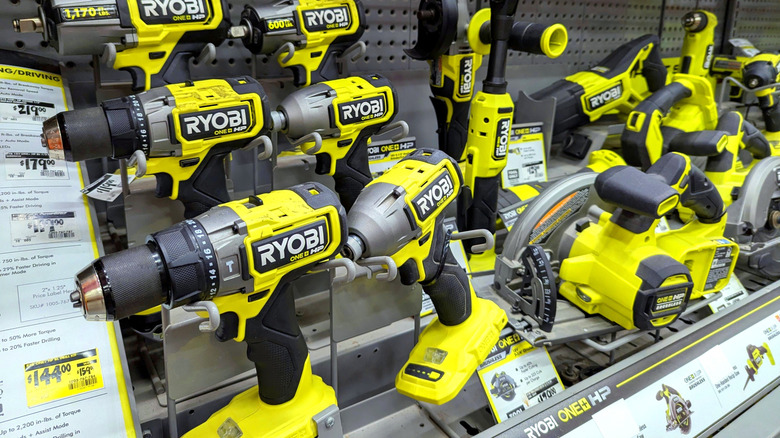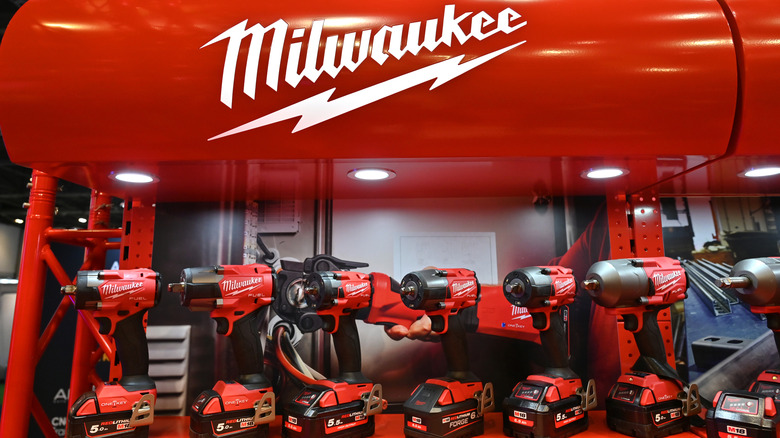Are Milwaukee Batteries Compatible With Ryobi Tools? Here's What You Should Know
Both Milwaukee and Ryobi are two of the biggest and best power tool brands, each with its own loyal customer base. Milwaukee is often used by professional contractors thanks to its rugged, high-performance tools and its robust M18 and M12 battery platforms. Ryobi, on the other hand, has made itself well-known to DIYers and homeowners, and is known for its varied and more affordable ONE+ system. But if you have some Milwaukee batteries laying around and want to use your Ryobi drill (but its battery is dead), can you do that? Unfortunately, even though the batteries for both seem pretty similar, the answer is no, even if you use an adapter.
Milwaukee and Ryobi have both carefully designed their own proprietary battery lines, as has every big power tool brand, creating unique product ecosystems. Because of this, the physical design of these battery systems and the connectors on these tools are completely different and not meant to be interchangeable. The battery terminals, the locking mechanisms, and the communication pins are all unique to each brand's gear.
If you are reading this article, odds are you have already seen third-party accessory sites advertising a workaround: a battery adapter to bridge the gap. You can even find adapters that say they can specifically connect a Milwaukee battery to a Ryobi tool, and vice versa. Just know that although this seems like an easy, clever solution to a common problem, using an adapter comes with a host of issues that make it a flat out bad idea, from warranty voids to causing damage to the tools or batteries. Let's take a look at the specifics.
Why you should be wary of adapters
It is completely understandable why the idea of using a single battery brand for all your power tools is alluring, but doing so is equally risky. The main danger lies in adapters interrupting the necessary electronic communication between the tool and its battery. Modern lithium-ion batteries and tools are equipped with a battery management system that keeps the tool and the battery talking to each other, so it can monitor information like temperature, voltage, and current draw. This system is designed to protect the battery from over-discharging and the tool from overheating, ensuring that things operate safely. It is also part of why you should remove batteries from your tools before storing them.
When you introduce a third-party adapter into the mix, you create a disconnect in this carefully engineered setup, and it is one of many mistakes that can shorten the life of your power tools. The tool and battery can no longer communicate as designed, thanks to the adapter bypassing this step, which can lead to bigger problems like subpar performance and even total failure. On a more practical note, using these third-party adapters can end up voiding your tool's warranty. Most manufacturers have strict policies against using any unapproved accessories, and a battery adapter falls squarely into that category. If your tool fails while using one of these adapters, you will likely be responsible for the full cost of repair or replacement. The most reliable and safest path is to commit to one brand's tool and battery ecosystem from here on out. That way, you can be sure your tools and batteries will always work in perfect harmony.

